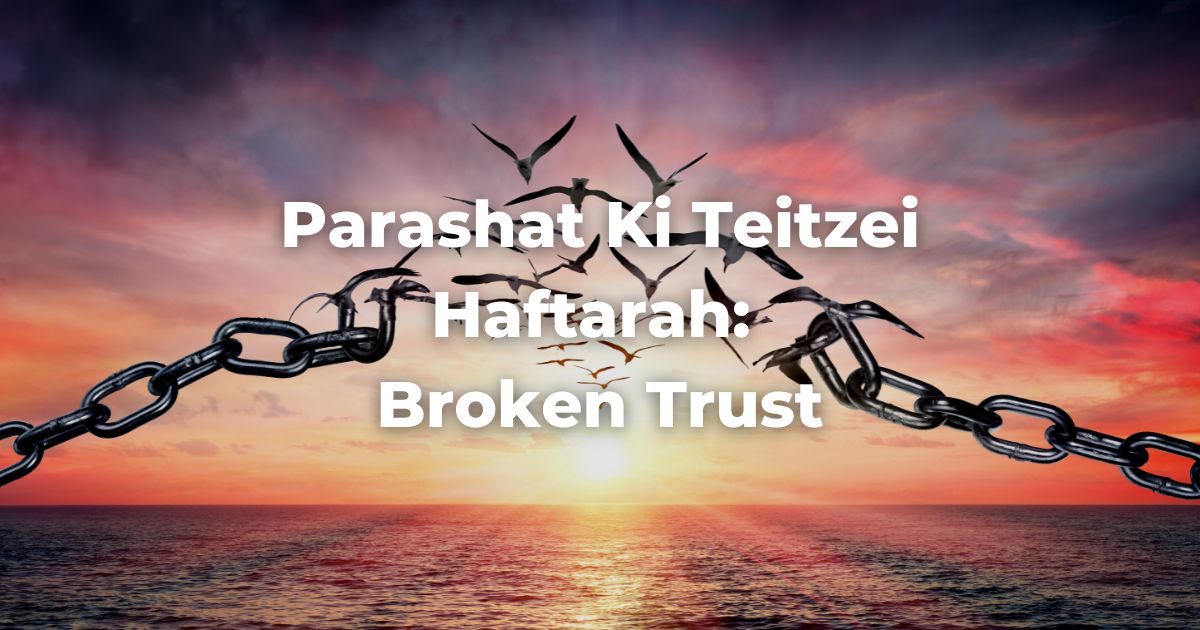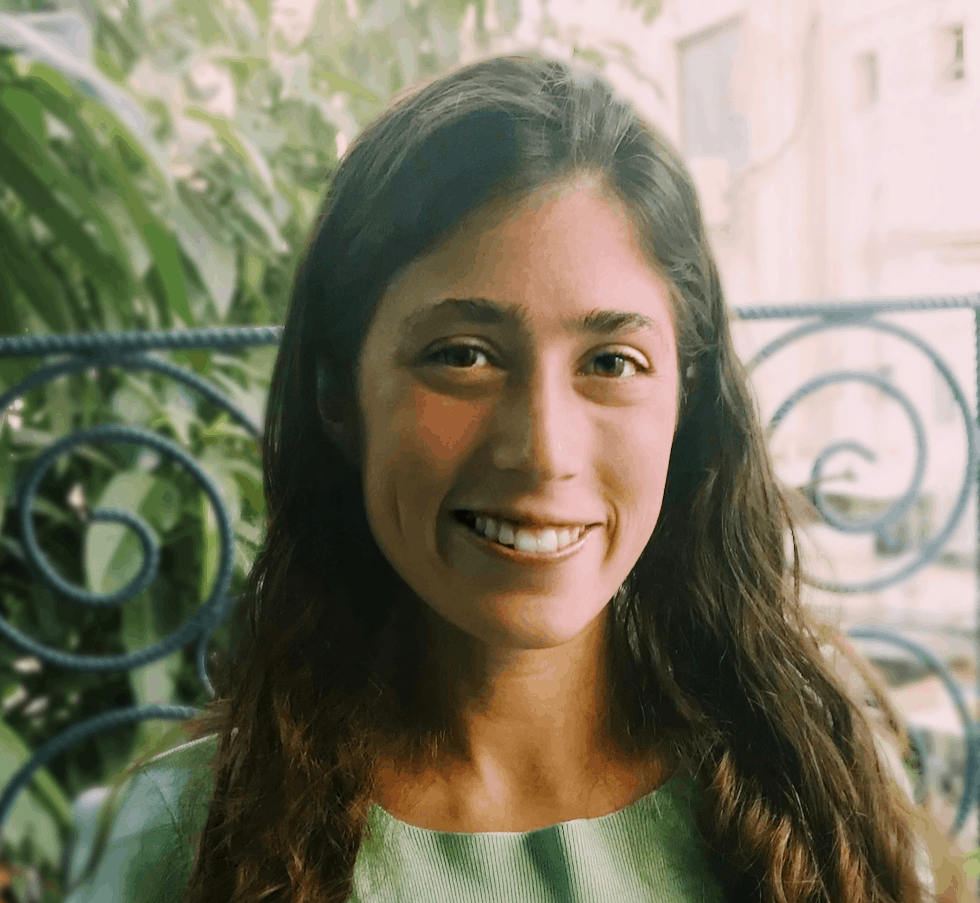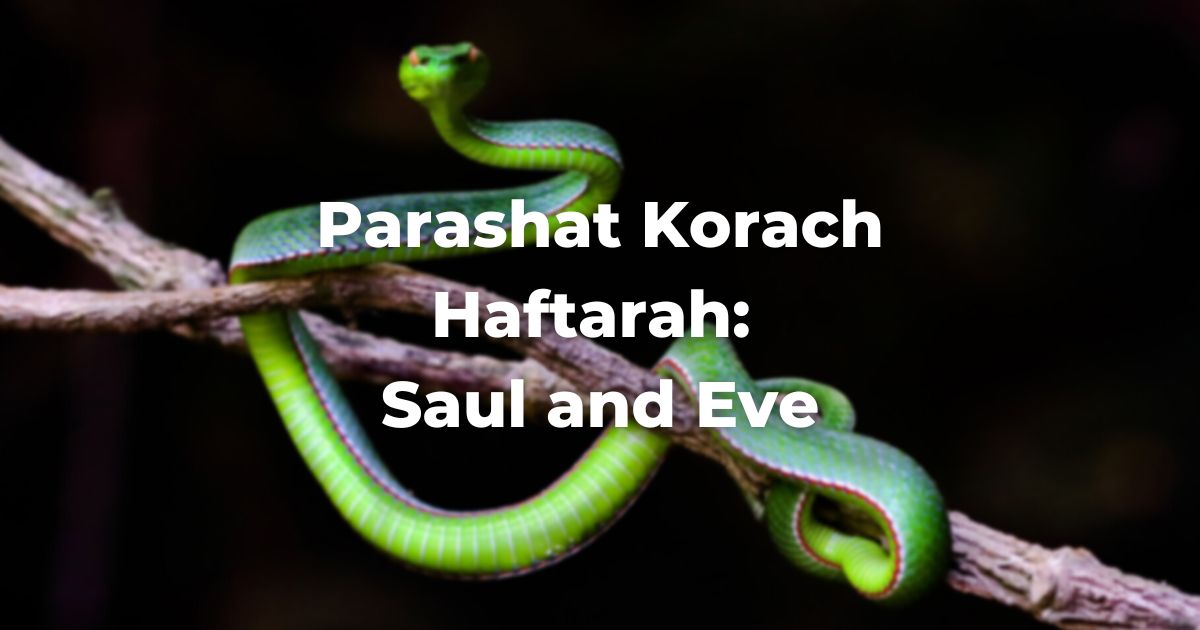The good times continue in this week’s haftarah, the fifth of the seven readings of consolation between Tisha B’Av and Rosh HaShana.
A Continued Narrative of Brokenness
Once again, we focus on the painless production and rearing of children for personified Jerusalem. Once again, the punishments and the abandonment that had been described in the Book of Lamentations are brought to an end and even reversed.
In Lamentations, chapter two, we read a cry of absolute desperation: “Get up, shout out in the night … Pour out your heart like water, before the face of the lord. Raise your palms to him, for the spirit of your little ones, fainting from hunger (Lamentations 2:19).”
In Isaiah, we are told again to “shout out,” but the cry has been transformed into a noise of celebration. We read, as translated by Robert Alter: “Sing gladly, O barren one who has not given birth, burst out in glad song, exult, who has not been in labor, for the desolate one’s children number more than the children of the one with a husband.”
Haunting all of these joyous tidings is our fear that it will not last.
If what was bad has been made good, what is to stop it from being made bad again?
Having experienced what happens when God gets really angry, it is hard to let go of the possibility that it might recur. It is as if for the first time we understand what it means to be in relationship with God—that we must accept the bad with the good.
The texts encourage us to let ourselves feel each moment fully, whether despair or jubilation.
The text in Isaiah also contains references intended to promise that we need fear no longer. It suggests that we will never again be subject to God’s anger in such a violent way. The haftarah closes as follows, as translated by Alter: “For as Noah’s waters is this to Me, as I vowed not to let Noah’s waters go over the earth again, so have I vowed not to be furious with you nor to rebuke you. For though the mountains move and the hills totter, My kindness shall not move from you nor My pact of peace totter.”
Just as we have never experienced another near destruction of the world by flooding, so too should we never experience a near destruction of our people by God.
The text also brings us back into the context of our previous covenant to our ancestors. The way our redemption is described in Isaiah recalls the language from Genesis. In our haftarah, we read, “For to the right and to the left you shall burst forth (Isaiah 54:3).”
The language used here, of descendants conquering and inhabiting lands that are not yet theirs, is reminiscent of the promise that God made initially to Abraham and then to Jacob back in Genesis when Jacob dreams of a ladder.
There, we read “And your seed will be like the dust of the earth and you shall burst forth to the east, the west, the north and the south (Genesis 28:14).”
As we approach Rosh HaShanah and begin to think about forgiveness, the ability to trust each other and ourselves to follow through on promises we have already broken becomes paramount.
Our haftarot for these seven weeks provide a guide to how that may be possible.
See more: Parashat Ki Teitzei
Originally posted as part of the Conservative Yeshiva at the Fuchsberg Jerusalem Center’s Torah Sparks. Support TorahRefers to the first five books of the Hebrew Bible, the Tanakh, also called the Five Books of Moses, Pentateuch or the Hebrew equivalent, Humash. This is also called the Written Torah. The term may also refer to teachings that expound on Jewish tradition. Read more learning from the Fuchsberg Jerusalem Center/Conservative Yeshiva for leaders and seekers around the world here.
Authors
-

Bex Stern Rosenblatt is the Conservative Yeshiva’s Faculty-in-Residence for the Mid-Atlantic Region of the United States, teaching Tanach, using the techniques of close-reading, theater, feminist readings, and traditional commentators. Bex also directs the CY’s recruitment efforts in North America. After finishing her B.A. in History and German at Williams College, Bex received a Fulbright Grant to Austria. She later earned an M.A. in TanakhAn acronym for the name of the Hebrew Bible: Torah, Neviim, and Ketuvim. Read more from Bar Ilan University and has also studied at the Conservative Yeshiva and Bina Jerusalem. Bex is the founder of HavrutaA study partner. A hevruta is more than just a ‘study buddy’ it is a serious and personal relationship between colleagues. Also spelled: Havruta Read more Tel Aviv, an organization that facilitates guided pair-learning of the Tanakh.
View all posts -



The Fuchsberg Jerusalem Center (FJC) is a home in the heart of Jerusalem where leaders and seekers can find an authentic place in Jewish tradition to call their own. FJC offers opportunities to study, pray and explore within an egalitarian and inclusive setting, creating multiple pathways for finding personal and communal meaning.
View all posts






